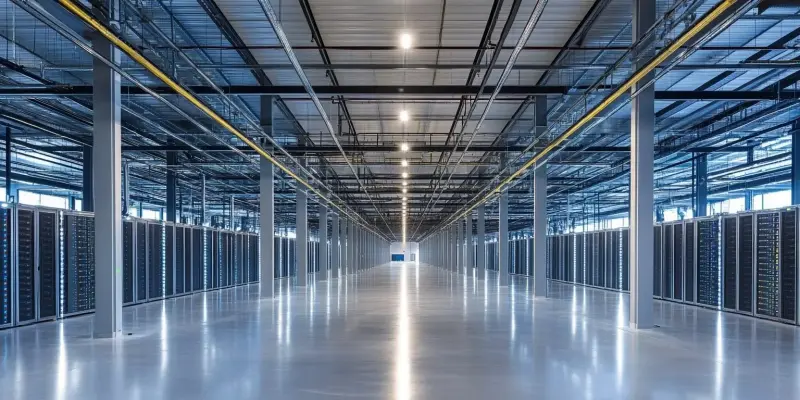In the rapidly evolving world of technology, the demand for high-performance computing has skyrocketed, driven primarily by the increasing interest in artificial intelligence (AI) applications. This surge has placed a significant strain on existing data center capacities and led to higher energy requirements. Addressing these escalating needs, Dubai’s Hodler Investments has entered a strategic partnership with US technology company Vertical Data. Their goal is the development of sustainable AI data centers across the UAE, Gulf, Africa, and Canada.
Renewable and Hybrid Energy-Powered Data Centers
Deployment of Sustainable Data Centers
To combat the challenges associated with traditional data centers, this partnership plans to deploy facilities powered by renewable or hybrid energy sources. Hodler Investments will provide the necessary energy supply, while Vertical Data will take charge of managing the operations. Vertical Data will also introduce a cloud-based GPU-as-a-Service (GPUaaS) platform. This innovative solution offers on-demand high-performance computing, enabling businesses to rent computing power as needed. By doing so, companies can avoid the substantial costs and delays typically associated with building and maintaining their own infrastructure.
In the UAE, where the demand for data centers is particularly high, the vacancy rate dropped to a mere 9 percent in the third quarter of 2023. In response, Hodler Investments plans to deploy 20 megawatts of capacity across two GCC countries by the first quarter of 2025. Additionally, the company aims to roll out a total of 200 megawatts across the region next year. These ambitious plans are supported by commitments from firms specializing in blockchain and AI services, and the initiative is funded by Hodler’s $500 million Digital Energy Infrastructure Fund, which was introduced in August 2023.
Addressing Energy Demand and Environmental Impact
The collaboration between Hodler Investments and Vertical Data extends beyond merely meeting computational demand; it is also focused on addressing the environmental impact of energy-intensive AI operations. By leveraging renewable or hybrid energy sources, the partnership aims to significantly reduce the carbon footprint of their data centers. In this way, the initiative supports a broader trend of integrating renewable energy with advanced technological solutions in an effort to achieve both growth and sustainability targets.
A notable aspect of the partnership is its scalability. As demand for high-performance computing continues to rise, the scalable nature of the data centers ensures they can expand their capacity efficiently. This approach not only meets immediate demands but also prepares for future growth, laying a strong foundation for sustainable technological advancements in the region.
Market Growth and Future Prospects
Projections for Middle East Data Center Market
The broader Middle East data center market is poised for significant growth, projected to increase from $5.6 billion in 2023 to $9.6 billion by 2029. This growth is largely driven by the rising demand for AI and cloud services. Such developments underscore the relevance and timeliness of the Hodler-Vertical Data partnership. As the region undergoes rapid digital transformation, the need for robust, scalable, and sustainable data center solutions becomes increasingly essential.
To further augment their efforts, Hodler Investments is collaborating with PermianChain, working in tandem with AI infrastructure providers in the United States. This strategic collaboration aims to integrate the most advanced technology into Middle Eastern data centers. By doing so, they ensure that the region remains on the cutting edge of AI and cloud services.
Challenges and Solutions
In today’s swiftly advancing technology landscape, the demand for high-performance computing has soared, primarily fueled by the growing fascination with artificial intelligence (AI) applications. This surge in AI interest has substantially strained existing data center capacities and escalated energy consumption needs. To address these increasing demands, Dubai’s Hodler Investments has forged a strategic alliance with Vertical Data, a US technology firm. This collaboration aims to develop sustainable AI data centers across various regions, including the UAE, the Gulf, Africa, and Canada. By building these advanced, eco-friendly centers, the partnership intends to enhance the infrastructure needed to support the burgeoning AI industry while mitigating the environmental impact of expanded computing capabilities. The strategic development of these centers will not only meet the heightened computational requirements but also promote sustainable practices in the technology sector, ensuring future growth is both efficient and responsible. This effort highlights the importance of international cooperation in addressing global tech challenges.

